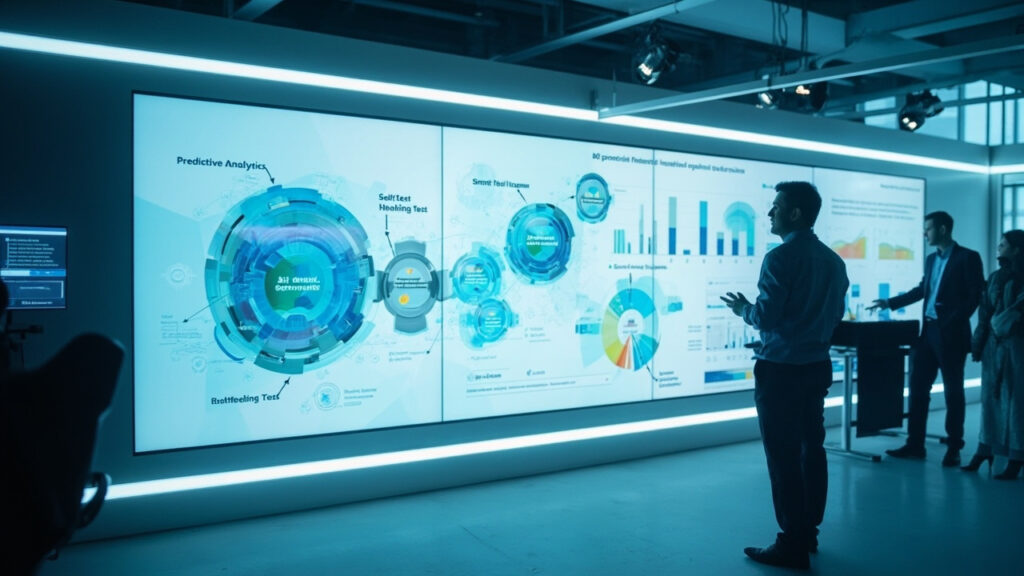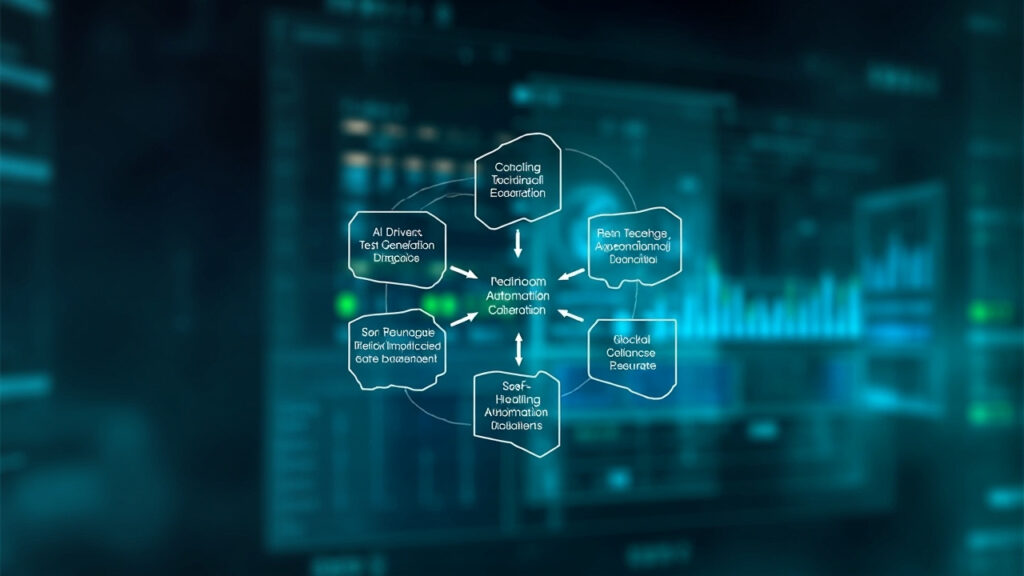In the dynamic world of software development, the importance of efficient and effective software testing cannot be overstated. As technology rapidly evolves and applications become increasingly complex, traditional testing methods are struggling to keep pace. This has sparked a critical need for more sophisticated, efficient, and reliable testing solutions. This comprehensive blog post explores the persistent challenges of contemporary software testing, delves into advanced methodologies, and introduces innovative solutions such as GenQE, which are set to redefine the landscape of software quality assurance.
Software testing is an essential phase in the development process, aimed at ensuring that the final product is defect-free, meets technical requirements, and delivers a seamless user experience. However, the accelerated pace of digital transformation poses significant challenges, often forcing companies to compromise between speed and quality. The integration of Artificial Intelligence (AI) in software testing offers a promising solution to these challenges, enhancing both the efficiency and effectiveness of testing processes.
Throughout this article, you will gain a deep understanding of how AI is revolutionizing software testing, with a focus on GenQE, a platform that exemplifies the integration of AI in quality assurance processes. Whether you are a software developer, a quality assurance professional, or simply a tech enthusiast, the insights provided here will equip you with knowledge about the significant advancements in software testing.
The Evolution of Software Testing

The Traditional Approach
Historically, software testing has been a predominantly manual process, involving exhaustive test case creation, execution, defect logging, and subsequent verification of fixes. This approach, while thorough, is fraught with potential for human error and inefficiencies, often resulting in prolonged development cycles and increased costs.
Shift to Automation
As technology advanced, automation began to play a central role in software testing. Tools like Selenium and QTP (QuickTest Professional) automated many repetitive tasks, significantly speeding up the testing process. However, even with these tools, a substantial amount of manual effort was still required for test case creation and maintenance, which could not keep pace with the accelerating speed of software releases.
The Rise of Agile and DevOps
The adoption of Agile methodologies and the rise of DevOps culture have further emphasized the need for more adaptive and continuous integration and delivery approaches. These methodologies demand faster and more frequent testing cycles, posing a challenge for both traditional and automated testing methods, which often cannot accommodate such rapid pace without compromising quality.
The Challenges of Modern Software Testing

Keeping Up with Rapid Development Cycles
In today’s fast-paced development environments, there is relentless pressure to release software quickly. Traditional testing methods, which are inherently time-consuming, often become bottlenecks, leading to delayed releases or compromised product quality.
Ensuring Comprehensive Test Coverage
As software applications become more complex, ensuring comprehensive test coverage is increasingly challenging. Inadequate test coverage can result in critical bugs going undetected, adversely affecting user satisfaction and the overall quality of the product.
Dealing with Flaky Tests and Maintenance Overhead
Automated tests often suffer from flakiness—failing intermittently without any changes in the code—leading to a loss of trust in the testing process. Additionally, maintaining test scripts as applications evolve involves significant effort and expense, detracting from the supposed efficiency gains of automation.
The Advent of AI in Software Testing

Transformative Potential of AI
AI holds the potential to transform software testing by automating not just the execution, but also the creation and maintenance of tests. By analyzing application data and user interactions, AI can identify high-risk areas, predict potential points of failure, and automatically generate targeted test cases, significantly enhancing both the efficiency and effectiveness of the testing process.
Key AI-driven Testing Approaches
- **Predictive Analytics:** AI algorithms analyze historical data and user behavior to predict areas of the software that are most likely to encounter issues, allowing testers to focus their efforts more effectively.
- **Smart Test Generation:** Leveraging machine learning, tests can be automatically generated based on real user interactions and system logs, ensuring that tests remain relevant and comprehensive as the application evolves.
- **Self-Healing Tests:** AI-driven scripts can automatically adapt to changes in the application’s interface or underlying logic, significantly reducing the maintenance burden and enhancing the resilience of the testing process.
Introducing GenQE: A Paradigm Shift in Software Testing

Overview of GenQE
GenQE stands at the forefront of the AI-driven testing revolution. As an advanced AI-powered software testing platform, GenQE enhances test automation, improves efficiency, and ensures robust software quality. It integrates seamlessly with existing CI/CD pipelines, making it an indispensable tool for modern development teams.
Core Features and Benefits
- **AI-Driven Test Generation:** GenQE automates the creation of test cases, significantly reducing the manual effort involved and enhancing test coverage.
- **Smart Test Execution:** It prioritizes test cases based on risk, ensuring that critical issues are addressed first.
- **Self-Healing Automation:** GenQE’s self-healing capabilities minimize maintenance efforts, making the testing process more resilient.
Implementing AI-Driven Testing in Your Workflow

Integration with Existing Tools
Integrating AI-driven testing tools like GenQE doesn’t mean discarding existing testing frameworks. GenQE complements tools like Selenium and Appium, enhancing their capabilities with AI-powered features.
Steps for Implementation
- **Assess Your Current Testing Processes:** Understand the gaps and identify areas where AI can make a significant impact.
- **Choose the Right Tools:** Select tools that integrate well with your current setup and meet your specific testing needs.
- **Train Your Team:** Ensure your team is upskilled to handle AI-driven testing tools and methodologies.
Case Studies: Success Stories of AI-Driven Testing

Example 1: E-Commerce Application
An e-commerce company implemented GenQE to handle their complex checkout system testing. The AI-driven test generation and execution led to a 50% reduction in bugs reaching production.
Example 2: Healthcare Software
A healthcare software provider used GenQE to enhance their application’s security and compliance testing. The AI-powered defect detection significantly improved their compliance rate with industry standards.
Conclusion: Embracing the Future of Testing

The integration of AI into software testing is not just an upgrade—it’s a necessary evolution to meet the demands of modern software development. Tools like GenQE are pioneering this transformation, offering smarter, faster, and more reliable testing solutions. As we look towards the future, embracing these innovations will be key to achieving higher quality software and faster time-to-market.
For organizations aiming to enhance their testing capabilities and streamline their development processes, exploring AI-driven testing tools like GenQE could be the next strategic step. Embrace the future of testing, and see how your projects can benefit from the intelligence and efficiency of AI.
Discover More Innovative Solutions
Want to learn more about the tools and technologies discussed in this article? Explore how these innovations can be tailored to your specific needs and workflow requirements.
Our team of experts is available to answer your questions and provide personalized insights into how modern solutions like GenQE can address your specific challenges.